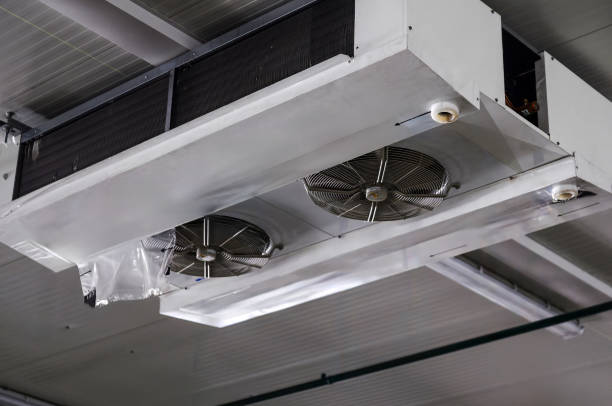Maximize Your HVAC Efficiency: Complete 2025 Guide
HVAC efficiency has become more critical than ever in 2025, with rising energy costs and stricter regulatory standards transforming how homeowners and businesses approach heating and cooling. Understanding HVAC efficiency ratings, energy-saving technologies, and proper system selection can dramatically reduce your energy bills while improving indoor comfort. Learning HVAC basics is essential before investing in new equipment or upgrades.
The landscape of energy efficientenergy-efficient HVAC systems has evolved significantly, with new minimum standards and advanced technologies making it easier than ever to reduce energy consumption. Whether you’re upgrading an existing system or installing new equipment, understanding the factors that influenceHVAC efficiency will help you make informed decisions that deliver long-term cost savings. Discovering how to choose an HVAC system ensures you select the right equipment for your specific needs and climate.
Understanding HVAC Efficiency Ratings: What Do They Mean?
HVAC efficiency ratings provide standardized measurements that help consumers compare different heating and cooling systems. Each efficiency rating measures specific aspects of system performance, giving you critical insights into how much energy your hvac equipment consumes. Understanding the SEER rating in HVAC systems is particularly important when evaluating cooling efficiency.
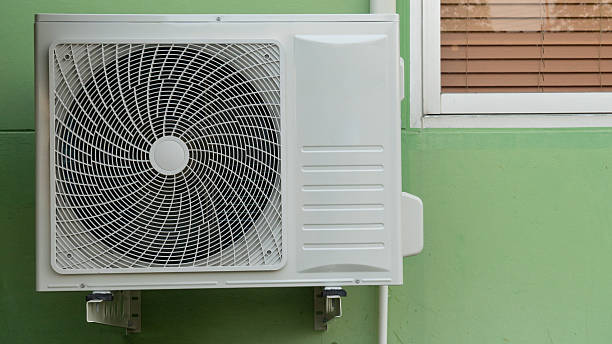
Key HVAC Efficiency Ratings You Should Know:
- SEER/SEER2 (Seasonal Energy Efficiency Ratio):Measures air conditioning and heat pump cooling efficiency over an entire season. Higher SEER ratings mean more cool air is produced while consuming less energy. 2025 minimums: 14 SEER2 (North) and 15 SEER2 (South)
- HSPF/HSPF2 (Heating Seasonal Performance Factor): Evaluates heat pump heating efficiency throughout the heating season. Current minimum requirement is 8.8 HSPF2, with premium systems achieving 10+ ratings
- EER (Energy Efficiency Ratio): Measures peak cooling performance during extreme temperatures, crucial for hot climates where cooling loads are highest
- AFUE (Annual Fuel Utilization Efficiency): Applies to furnaces and boilers, showing the percentage of fuel converted to heat. Minimum standard is 81% AFUE nationwide
Heat Pumps: The Future of Energy EfficientEnergy-Efficient Heating and Cooling
Heat pumps represent one of the most energy efficientenergy-efficient technologies available for residential and commercial applications. Unlike traditional furnaces that generate heat through combustion, heat pumps work by transferring heat from one location to another, requiring significantly less energy to maintain comfortable indoor temperatures. Modern systems can achieve up to 300% efficiency, making them the most HVAC systems available today.
The heating seasonal performance factor measures how efficiently a heat pump delivers warmth during the heating season, with modern heat pumps achieving HSPF2 ratings of 7.5 or higher. Both air-source and geothermal heat pumps qualify as energy efficientenergy-efficient equipment under current standards and may be eligible for federal tax credits up to $2,000 through residential HVAC services.
Heat Pump Comparison: Finding Your Best Option
| Heat Pump Type | Efficiency Rating | Best For | Energy Savings | Initial Cost |
| Air-Source | 8-10 HSPF2 | Most climates, existing homes | 20-40% vs traditional | Moderate |
| Geothermal | 12-16+ HSPF2 | Long-term investment | Up to 65% vs traditional | High |
| Ductless Mini-Split | 9-12 HSPF2 | Homes without ducts, zone control | 25-40% vs traditional | Moderate-High |
Energy Efficient HVAC Systems: Features and Technologies
Modern energy efficientenergy-efficient HVAC systems incorporate advanced technologies that dramatically improve performance compared to older equipment. Understanding britishBritish thermal unit (BTU) measurements is essential—BTUs represent the heating or cooling output your system delivers. The best home HVAC system maximizes BTU output per unit of electricity consumed, directly reducing energy costs.
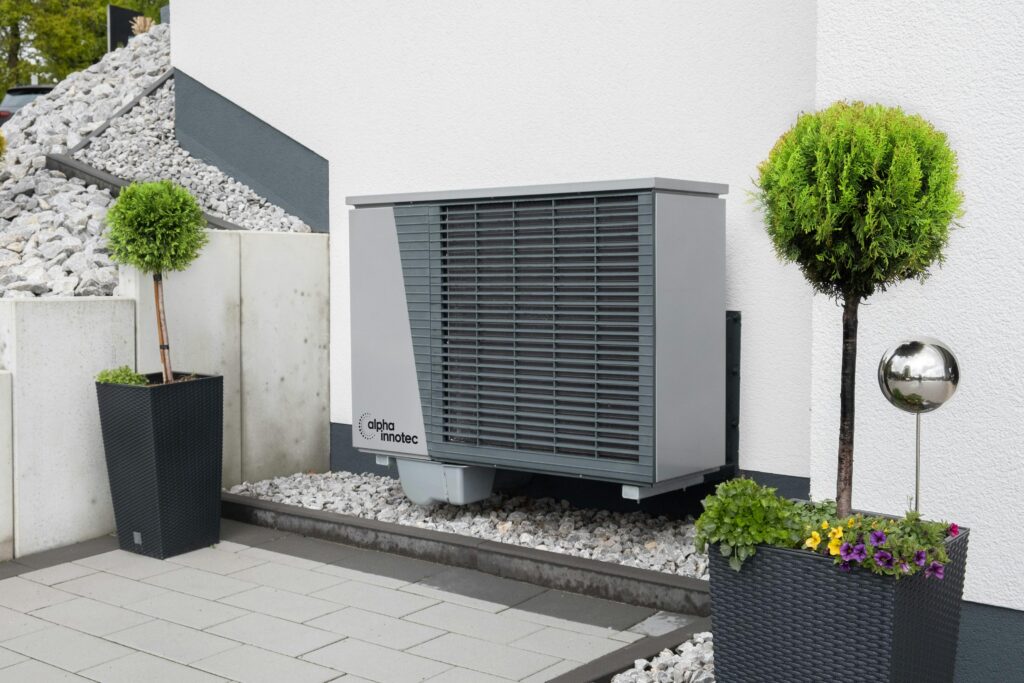
HVAC efficiency depends on proper installation, regular maintenance, and appropriate system sizing for your space. According to the U.S. Department of Energy, properly maintained systems can reduce energy consumption by 15-20% while extending equipment lifespan. Professional residential HVAC services ensure your equipment operates at peak efficiency.
Key Features That Maximize HVAC Efficiency:
- Variable-Speed Compressors: Adjust capacity based on demand, eliminating energy waste from constant on-off cycling and improving system efficiency by 20-30%
- Smart Thermostats: Learn occupancy patterns and optimize temperature settings automatically, potentially improving efficiency by up to 15% while reducing energy bills
- Zoning Systems: Allow different areas to maintain different temperatures, reducing wasted heating and cooling in unoccupied spaces and lowering energy consumption
- High-Efficiency Air Handlers: Feature improved motors and filtration that reduce energy use while enhancing indoor air quality and air distribution
- Variable Refrigerant Flow (VRF): Enables precise temperature control in commercial buildings while minimizing energy consumption and improving heating and cooling efficiency
Energy Star certifiedStar-certified equipment meets strict efficiency criteria, typically offering 15-20% better performance than minimum requirements. Proper air distribution through well-sealed ductwork prevents the 20-30% energy loss common in systems with leaky ducts. The term HVAC encompasses not just equipment but the entire ecosystem of ductwork, insulation, and controls working together.
Proper Installation: The Foundation of HVAC Efficiency
Even the most efficient HVAC system cannot achieve its rated performance without proper installation. Incorrect sizing, improper refrigerant charging, and inadequate ductwork all compromise HVAC efficiency. Systems installed by qualified professionals undergo comprehensive load calculations to determine the right system size—oversized equipment cycles inefficiently while undersized systems struggle continuously. Understanding split system HVAC configurations helps ensure proper component matching.
Ductwork quality significantly affects overall HVAC efficiency, with leaky ducts wasting up to 30% of conditioned air before reaching living spaces. The EPA’s Energy Star program emphasizes that proper duct sealing is one of the most cost-effective ways to improve efficiency. Professional heating maintenance and proper sealing ensure cool air and warm air reach intended destinations.
Regional HVAC Efficiency Standards and Requirements
HVAC efficiency standards vary by region, reflecting different climate conditions and cooling loads across the United States. Northern regions require minimum 14 SEER2 ratings for air conditioners, while Southern areas mandate 15 SEER2 due to longer cooling seasons and higher energy consumption for air conditioning. The heating seasonal performance factor requirements also differ regionally, with the minimum HSPF for new heat pump installations at 8.8 HSPF2 in most regions.
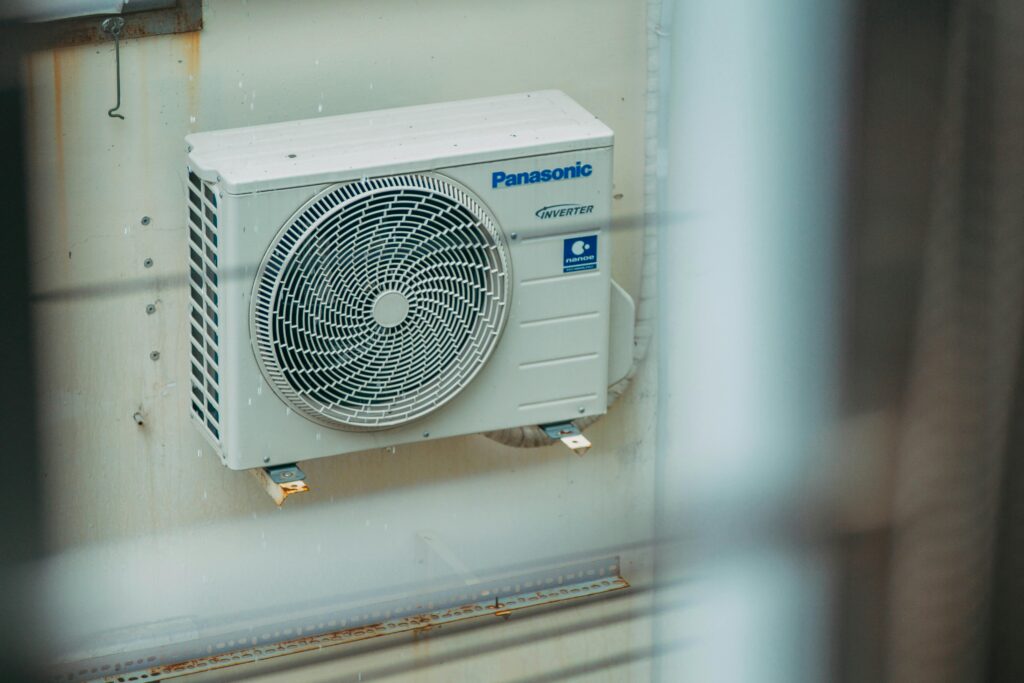
Recent updates include the transition from SEER to SEER2, using more stringent testing that better represents real-world performance. Additionally, 2025 implemented new refrigerant regulations phasing out high Global Warming Potential substances in favor of environmentally friendly alternatives like R-454B and R-32, addressing both energy use and environmental impact alongside energy efficiency standards.
Commercial HVAC Efficiency: Maximizing Savings in Large Spaces
Commercial buildings face unique challenges in achieving optimal HVAC efficiency due to larger spaces, diverse occupancy patterns, and varied cooling loads. Sophisticated HVAC systems with advanced controls and zoning capabilities are essential for balancing comfort with cost savings. Commercial HVAC service providers specialize in designing and maintaining systems that often reduce energy bills by 30-40% compared to traditional approaches.
Refrigeration systems, air handling units, and building management systems must integrate seamlessly to achieve high efficiency performance. Energy audits identify improvement opportunities—often upgrading controls and optimizing operation sequences delivers significant energy savings without complete system replacement, reducing carbon footprint while improving building operations and tenant comfort.
Maintenance: Protecting Your HVAC Efficiency Investment
Regular maintenance is crucial for maintaining HVAC efficiency throughout equipment’s lifespan. Dirty filters, low refrigerant levels, and worn components force systems to work harder, increasing energy consumption and reducing efficiency ratings. Professional AC maintenance services prevent these problems through comprehensive inspections and tune-ups, helping you reduce HVAC energy bills by 15-20% annually.
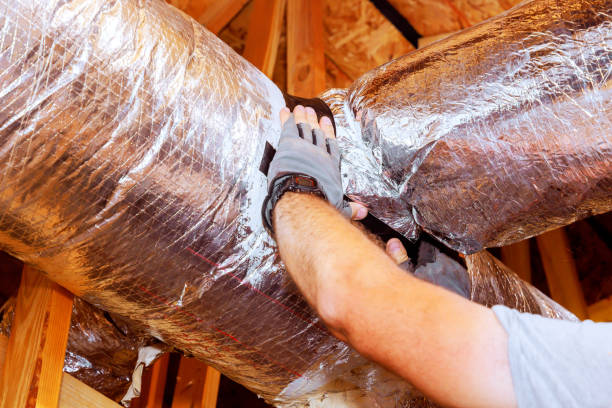
Seasonal maintenance visits ensure cooling systems operate efficiently during summer and heating equipment performs optimally in winter. Monitoring energy bills for unexpected increases alerts you to efficiency problems requiring professional attention—sudden spikes often indicate equipment malfunctions or ductwork leaks that compromise system efficiency.
Essential Maintenance Tasks:
- Monthly Filter Changes: Ensures adequate airflow through the system, preventing efficiency loss and maintaining proper air distribution
- Seasonal Tune-Ups: Professional service before summer and winter optimizes cooling systems and heating equipment performance
- Coil Cleaning: Removes dirt buildup that reduces heat transfer efficiency and forces systems to consume more energy
- Refrigerant Level Checks: Proper charge is critical for achieving rated efficiency ratings and preventing compressor damage
- Thermostat Programming: Correct smart thermostat settings reduce energy use without sacrificing comfort
Financial Incentives for HVAC Efficiency Upgrades
Federal, state, and local governments offer substantial incentives for upgrading to energy-efficient HVAC systems. The IRS Energy Efficient Home Improvement Credit through the Inflation Reduction Act provides a tax credit of up to $2,000 for qualifying heat pump installations, making efficient HVAC upgrades more affordable. Energy Star-certified equipment typically qualifies for the most generous incentives, with many utility companies offering additional rebates for equipment exceeding minimum efficiency standards.
While high-efficiency equipment costs more initially, reduced energy bills often recoup the investment within 5-7 years through lower energy consumption. Combined with available tax credit and rebate programs, upgrading to an efficient HVAC system becomes financially attractive even before considering comfort improvements and environmental benefits that deliver lasting value.
The Environmental Impact of HVAC Efficiency
Improving HVAC efficiency delivers environmental benefits beyond reduced energy bills, with heating and cooling accounting for approximately 40% of energy consumption in commercial buildings and nearly 50% in residential properties. Reducing this energy use through efficient equipment and practices significantly lowers greenhouse gas emissions and carbon footprint. Energy-efficient equipment also reduces peak demand on electrical grids, helping maintain grid stability during extreme weather events.
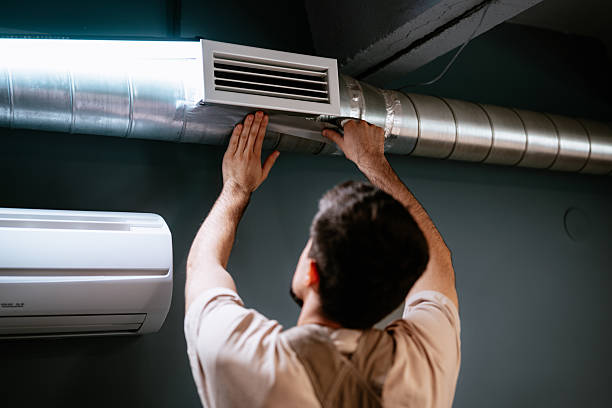
Heat pumps powered by renewable energy sources like solar panels offer carbon-neutral heating and cooling solutions. As electricity grids incorporate more renewable generation, the environmental benefits of electric heat pumps over fossil fuel systems continue to grow. New refrigerants with low Global Warming Potential reduce direct environmental impacts while maintaining high efficiency performance, demonstrating that environmental responsibility and efficiency complement each other.
Choosing the Right System for Your Needs
Selecting the right system requires balancing efficiency, capacity, features, and budget considerations. Heat pumps excel in moderate climates offering both heating and cooling capabilities, while traditional air conditioners paired with high-efficiency furnaces may suit regions with extreme winters where heat source reliability during cold snaps is paramount. Learning how to choose an HVAC system helps you navigate these important decisions.
Consulting with experienced professionals ensures equipment matched to your specific needs through comprehensive load calculations that account for building envelope characteristics, occupancy patterns, and climate conditions. Callidus Air provides expert consultation, installation, and maintenance services that maximize HVAC efficiency throughout equipment lifespan, staying current with new technologies and energy efficiency standards.
Future Trends in HVAC Efficiency
The future of HVAC efficiency includes continued adoption of smart thermostats and building automation that optimize system operation in real-time. Artificial intelligence and machine learning algorithms will predict cooling loads and adjust equipment operation proactively, maximizing efficiency without manual intervention while delivering high efficiency performance that adapts continuously to changing conditions.
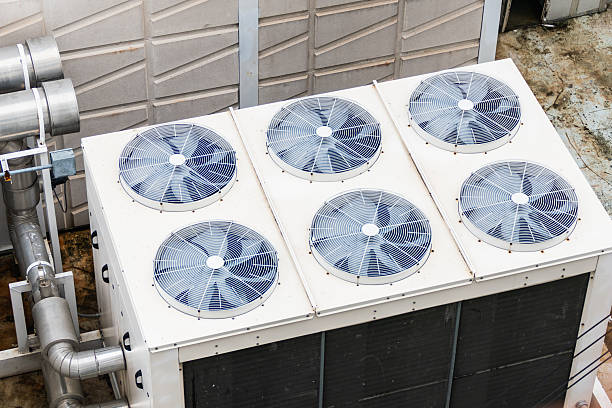
Increased integration of energy storage with HVAC systems will allow buildings to shift heating and cooling to off-peak periods, reducing costs and grid impact. Energy efficiency standards will continue evolving, with minimum requirements rising periodically—investing in equipment that exceeds current standards positions buildings for future requirements while maximizing immediate energy savings and capturing maximum incentive benefits.
Final Thoughts: Take Action to Improve Your HVAC Efficiency Today
Maximizing HVAC efficiency delivers substantial benefits including reduced energy bills, improved comfort, and decreased environmental impact. Understanding HVAC efficiency ratings, selecting appropriate equipment, ensuring proper installation, and maintaining systems diligently create lasting value for residential and commercial properties.
The combination of advancing new technologies, attractive financial incentives, and rising energy costs makes now an ideal time for upgrading to more efficient HVAC system components. Ready to maximize your HVAC efficiency? Contact us today for expert recommendations. Callidus Air specializes in helping clients achieve optimal HVAC efficiency through professional installation and maintenance.
Frequently Asked Questions About HVAC Efficiency
What is the most important HVAC efficiency rating to consider?
The most important efficiency rating depends on your climate. For air conditioning, the seasonal energy efficiency ratio (SEER2) is crucial. For heat pump heating, the heating seasonal performance factor (HSPF2) matters most. For furnaces, annual fuel utilization efficiency (AFUE) indicates heating efficiency. Consider all relevant efficiency ratings when selecting HVAC equipment.
How much can I save by upgrading to a more efficient HVAC system?
Energy savings typically range from 20-40% depending on existing equipment. A home spending $2,000 annually on heating and cooling could save $400-$800 per year with a high-efficiency upgrade. Combined with federal tax credit programs offering up to $2,000, most systems pay for themselves within 5-7 years through reduced energy bills.
Do heat pumps work efficiently in cold climates?
Modern heat pumps deliver efficient heating even in cold climates, with many models maintaining excellent performance down to 0°F or lower. Advanced cold-climate heat pumps achieve HSPF ratings of 10 or higher. Proper installation and appropriate equipment selection ensure heat pumps perform efficiently in virtually any climate.
How often should I schedule HVAC maintenance to maintain efficiency?
Professional heating maintenance and AC maintenance should occur at least annually, ideally before each major season. Change filters monthly during peak seasons and keep outdoor units clear of debris to maintain optimal HVAC efficiency.
What are the current minimum HVAC efficiency standards for 2025?
Current energy efficiency standards require a minimum of 14 SEER2 in Northern regions and 15 SEER2 in Southern areas. Heating seasonal performance factor minimums increased to 8.8 HSPF2 nationwide. Furnaces require at least 81% AFUE. Premium equipment offers significantly higher efficiency ratings that deliver greater energy savings.

